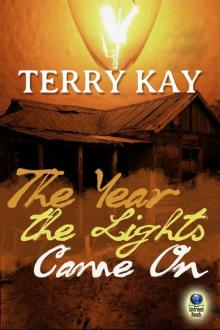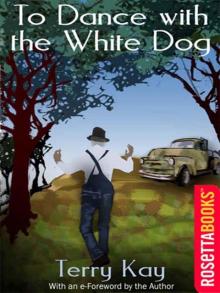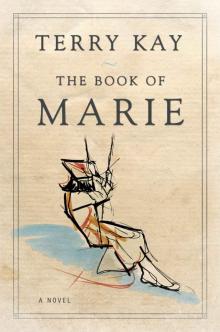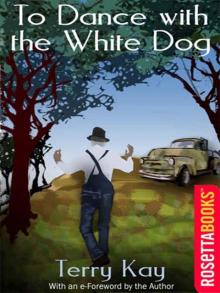The Book of Marie Read online
Page 13
After eating, he went into his office and awoke his dozing laptop and read what he had written the day before, and the memory of the prom and of the visit with Jovita and Littlejohn and of the warning from the policeman named Julian Overstreet played again in fifty-year-old images. It puzzled him that he remembered Julian Overstreet’s name. Over the past few years, he had had trouble remembering the names of students who had spent four years in his classroom.
He wanted to continue the writing, but knew it would tire him. Instead, he took another of Marie’s letters and read it:
Dear Dr. Bishop,
I have good news, Cole. Good news from that place you used to call home and that place I so despised—except for you and Jovita and Jovita’s children. Littlejohn is a college graduate. Think of that, Cole. That little boy who believed your wonderfully silly story about an orange turtle, is now an educated young man. He’s going to be an artist and a teacher. I’ve never shared it with you, but after I left Overton, I wrote to Jovita and the children regularly. It was my way of forcing them to learn to read and write. And it worked, Cole. Little by little, I began to get letters back from Jovita. You would have scoffed at the writing, but I thought it was great literature, far better than Shakespeare. And then Littlejohn started writing. Sometimes he would send me something he had drawn and I knew he had talent. I could see it, year by year. I have a whole collection of his drawings and paintings. They’re framed. They hang in my bedroom. It’s too bad you’ll never see them. Even if you did visit me, I would not permit you in my bedroom. That’s another thing you don’t know, do you? I’ve decided to deny any and all sexual pleasures. I’m going to be as chaste as a nun. That’s what you’ve done to me, Cole Bishop. I hope you’re happy. Oh, one other thing about Littlejohn’s education: I paid for it. Every penny. Of course, Littlejohn doesn’t know it was me. I did it anonymously, a special scholarship. Is it boasting to tell you that, Cole? I hope not. I’m proud of it. Are you surprised? Of course you are. Everything that happens to you, or around you, is a surprise to you. You never see anything. It’s a wonder that you’ve managed to survive.
Okay, I’m lying. I do that sometimes when I have this insane compulsion to write to you.
But it was only part-lie.
I do not know about Littlejohn. What I wrote was from a dream I had years ago after treating a young boy who reminded me of him. But I did write to Jovita and the children. And Jovita did write back a few times, or Sarah wrote for her. And I do have some drawings from Littlejohn sent along in the letters, but as far as I know, he never made it beyond high school—if he made it that far.
But I would have paid for his education. I would have. I’m sorry I didn’t find a way to make it happen. He was a bright little boy. And beautiful. Wasn’t he, Cole? Wasn’t he beautiful?
I’m sorry I quit writing to Jovita. After a time, I was unable to take the guilt of being so well-off while she was still struggling. I wonder if she has had her homegoing. (Do you know about homegoings, Cole? It’s a word I learned from Moses when I was asking him about the funeral home business. He said black people referred to death as a homegoing. Isn’t that a great word? I think so. I think it’s the most poetic word I’ve ever heard. Homegoing to God. I like that.)
Oh, I also lied about denying sexual pleasures. If my damnable schedule provided me some free time, I would be as chaste as a nymphomaniac. Yep, my fine friend, my great innocent, I have to admit it: I do love sex and I indulge every chance I have, even with patients too drugged to know what I am doing to them. Last week, I took my pleasure with a football player who had been hospitalized with a knee injury. A football player, Cole. One of the rah-rah boys. Does that take you back?
Okay, I just lied again. You know that, don’t you? You know I would never violate something I consider sacred.
Sometimes, Cole, I really like aggravating you (or amusing you). Sometimes, I believe the game we played in high school is the only thing in my life that is worth remembering.
Damn you.
Tonight I miss you. Happily, tomorrow I’ll be too busy to think about it.
Your Juliet.
Because of all that had happened, the letter always brought sadness and the damp blur of tears.
TWELVE
The call from Tanya came at 9:30. In the background, he could hear voices and laughter.
They won’t go home, she said in an irritated whisper. How are you?
Better, he told her. I think it was just a twenty-four-hour bug.
Good, she said. I’m not sure when I can get away.
I don’t want you to, he insisted. Stay there. I made a fire and I’m just sitting here, reading. I’m going to bed in a few minutes.
Are you sure? she asked.
I’m sure, he replied. Go back to your guests.
I’d much rather be there, she muttered. Things are getting out of control over here. I swear it’s the last time I’m serving alcohol, or even having a Christmas party. It’s not even my holiday, for crying out loud.
What do you mean? he asked.
I’ve never told you, Cole, but I’m Jewish, she answered.
Sure, you are, he said. And while we’re making confessions, I think it’s time you knew that I’m really a Buddhist.
He had expected a laugh, but did not get one. She said, No, Cole, I am. It’s something Mark and I have kept private. I converted to Christianity before we married, but it was just an act, something to make his parents happy. I go to church, yes, but I’m an agnostic, if I’m anything.
I don’t believe it, he said.
And I don’t give a rat’s ass if you do or not, she told him. It’s the truth. Since I’ve been reading about your private life, I just thought you should know, but you’re to keep it to yourself. If you don’t, I’ll have you up before the administration on a sexual harassment charge.
He did not reply.
After a moment, she added, All right, not that. No one would believe it anyway, but I’ll think of something.
Of course I’ll keep it private, he said earnestly. But I do want to talk to you about it someday.
Someday, she replied. But not now. I’ve got to get back to the madness. I’ll call you in the morning
All right, he told her. Then, without thinking: Merry Christmas.
Happy Hanukkah, she said.
He could hear a peal of laughter in the background, then the click of the hang-up.
In his chair, sitting before the fireplace, watching the flames lick across the birch logs provided by Dexter Williams, he thought of Tanya Berry’s admission about being Jewish. He was stunned she had hidden it so well and wondered if the secrecy of it had brought shame to her, or to her family. She had never spoken of religion to him, not in a serious way. Once he had made a reference to the small United Methodist church of his childhood, how it had been a place of solace, and she had said, My grandfather taught me something. He told me that religion was like playing with a paper doll. You could dress it up to look a thousand different ways, but you put all those dresses on the same doll.
A good way of considering it, he thought.
And maybe Tanya Berry’s story about being Jewish was only a tease. Maybe she was as Presbyterian as her husband, born into the heritage of the Church of Predestination, as his United Methodist teachers had called it.
Maybe Tanya was simply feeling frisky from dinner wine and wanted to toy with him, the same way Marie Fitzpatrick had toyed with him. He was gullible enough for it, and he had begun to believe there was more of Marie in Tanya than he had realized.
It was possible, he reasoned.
Maybe even predestined.
He slept for only a short time, yet it was a good sleep. There were no visits from demons, no floating bubbles of familiar faces, no fire-burning drifts of snow, no child being raised from the dead. No dreams at all.
At 2:11 by his digital bedside clock, he awoke hungry and went into his kitchen with an odd craving for cheese grits, leaving him to wonder
if the writing of his boyhood had caused a chemical memory to take place. Still, he wanted the grits and he made them, crumbling feta cheese into them, eating them with buttered toast and jelly. The fever that had invaded him had slipped out of his body and he could feel his energy building. He made hot tea, sweetened it with honey, and went into his office and turned on his laptop.
He wrote:
December 26, early morning
After the night of the prom, Marie did not return to school until the following Thursday. I tried calling her but was told she was not at home, or was resting. I knew by Jovita’s voice, and by Laura Fitzpatrick’s voice, that they were lying. Or maybe not lying. Maybe they were merely protecting her.
I believed her absence from school and her refusal to talk to me had to do with Sally Dylan’s anger and with the hammering, insidious gossip she thought would swirl throughout Overton High School.
Oddly, there had not been any gossip. Not about Marie teaching black children in her garage.
The gossip had been about Sally Dylan and Art Crews. They had been stopped by the county sheriff on the highway leading from Kilmer’s Recreation Hall. Sally had been inebriated and sick, incensed by Art’s attention to Marie. In her ranting after Marie and I left the prom, she supposedly announced that she was pregnant. The sheriff had driven her home, with Art following. The next day, Art and Sally had become engaged to be married after graduation.
It was the kind of gossip that filled mouths and minds, overwhelming everything else, even the sensuous appearance of Marie Fitzpatrick at the Junior-Senior Prom.
I had expected to be kidded about her, but was, instead, avoided, shunned, somehow held accountable for what had happened at the prom. Yet, it was not open hostility. The boys who had been my teammates simply stopped talking to me, or if they did say something, it was edged in the kind of harshness that I received one afternoon from Wormy. He looked at me with a hard glare and said, “You a nigger-lover, Cole?” I asked what he was talking about. He replied, “Word is, you went to see some nigger after the prom. That right?” I walked away without answering him. It was the wrong thing to do. To Wormy, and to others, it was confirmation, and I now believe that the only thing preventing ugliness was the history we had shared. The goodness of history between people is powerful.
When she did return to school, Marie was different. Quiet, timid. She wore an expression of sadness, like someone who lived alone, at ease only in the company of shadows. She avoided me, and I knew intuitively not to pressure her. She had asked for my promise of understanding; I had given it. She would sit in classrooms, gazing out of the window, not responding even when her name was called. At lunch break, she would wander to the elementary school playground and sit in the swings, or hide herself behind trees.
I remember that Marilyn Pender asked me if she was all right.
“She’s fine,” I said. “She’s just got a lot on her mind, I guess. You know how she is.”
It was an answer Marilyn Pender, and everyone else, understood. No one had forgotten Marie’s first few weeks at Overton High School. Everyone knew how she was, or had been, or could be.
It was best not to bother her.
A week later, also on Thursday, the last day of classes for seniors, I discovered an envelope under the windshield wiper blade of my parents’ car. I tore open the flap and pulled out a single sheet of paper written in Marie’s careful cursive.
Cole, you’ll understand everything soon enough. I miss you.
She had drawn a small, orange-colored turtle at the bottom of the page.
She’s about to do something, I thought. Something no one could stop.
I was right.
It had always been believed by my classmates that I would be the valedictorian of Overton High School’s class of 1955.
Until Marie Fitzpatrick appeared.
After that, it was not a contest.
I was named salutatorian, Marie valedictorian.
And it was Marie who delivered the valedictorian’s address during graduation ceremonies in the school auditorium.
The memory of that night and of her speech is as clear and as significant to me as any experience I have ever had. Her speech was short and stunning and as deliberate as a suicide.
She offered no greeting to school officials, or to her classmates, or to the attending audience after her introduction by O. J. Mayfield.
She stood in her cap and gown, her face clean of makeup, her body appearing small and weak. Stood gazing at the sheets of paper she had placed on the podium in front of her. Stood waiting for something to invade her. Stood long enough for a jittery movement to begin among our classmates, long enough for Wormy to begin patting his leg with his hand, long enough for O. J. Mayfield to clear his throat and cough.
And then she looked up and inhaled and her body seemed to lift, to grow behind the podium. “I came to this school,” she began in a strong, sure voice, “believing it offered an inferior education. I leave it affirmed in that fact.
“You are good people,” she continued, “but good people are often timid people, and timid people are always afraid of change.”
She paused, looked over the audience, caught my eye, then glanced back at the typed paper on the podium in front of her.
“One of the first things I learned about the history of this town was of the tornado that struck in 1932. Many of you remember it. Many of you had family killed in the destruction. I want to tell you that you are in the path of another tornado, a tornado of change that is gathering strength all around you. It is a tornado that will destroy every tradition you own, sweep away every belief that props you up, assault you like invisible armies. You cannot survive it as you are.
“You will be confused and angry. You will fight back with words and threats. You will vow to stand strong and resist. You will ask yourself, ‘Why is all of this necessary, when things are fine the way they are?’
“But things are not fine.
“When I first came here, I learned of four small black children who could not read, and decided to teach them. Their mother stopped my teaching. She was afraid. Afraid of what the good white people of Overton County would think, afraid for the safety of her own children and afraid for my safety. She was afraid of being considered an agitator. Better that her children grow up illiterate than to be thought of as trouble-makers.
“When I first came here, I sat in classrooms filled with students who simply wanted to last through the day, and then the month, and then the year, until, finally, they could gather here tonight to receive a sheet of paper that lies to them about their education.
“When I finished my last class here, it was the same. Nothing had changed.
“But it will. It will change because so many of my classmates will struggle to make a living, and, years from now, they will look about at the rubble left by the tornado of change and they will say, ‘Yes, I failed. Yes, I must do better by my children.’
“In twenty years, nothing will be the same.
“You will not work at the same jobs in the same way.
“You will be invaded by people from other nations, looking for jobs, for a chance to be free, and they will teach you things you have never imagined.
“You will sit numb in front of your television sets and watch wars play like cartoons.
“Your children will sit in classrooms with red children, yellow children, black children, and you will cry in anguish because you won’t understand what is happening.
“And the answer is so simple: you cannot exist without change.”
Marie paused again, staring at the sheet of paper. She touched it tenderly with her fingers, then looked up. I thought I saw tears.
“When I came to your town, to your school, I was considered an outsider. And I was. And I am. I cried for weeks when my parents told me we were moving here. Surely, I thought, there must be a reason. Something. Anything.
“I now know the answer to that.
“I came here to warn you,
to make you angry.
“And I have done both. And I am at peace.”
She stood silently, let her eyes flicker over the audience, then she said, “To my mother and father, I want to say that I’m sorry. I know I’ve embarrassed you.”
She picked up her paper, stepped back from the podium, looked once at me, then walked off the stage and out of the auditorium.
I thought I would hear grumbling, hissing, loud objections, but no one spoke after Marie left. I could feel my face covered with a blush, could feel eyes turning to stare at me. From behind me, in the section reserved for parents, I finally heard a single whisper: “She’s crazy.” I turned to see Laura and George Fitzpatrick stand and wiggle their way along the row of seats and rush up the aisle to the door, their heads down.
O. J. Mayfield stood from his seat on stage and ambled to the podium. “Let’s see now,” he stammered. “Where are we?” He studied the program. “Uh-huh, uh-huh,” he said. “Time to pass out the diplomas.”
After the ceremony of graduation, with its jubilation muted by Marie’s speech, I slipped away from my parents and from Toby and Amy and Rachel and went to the playground of the elementary school. Marie was there, swinging lazily, the heels of her dress shoes skimming the soft belly of dirt beneath the swing path.
“Marie, why’d you do that?” I asked in exasperation.
“Because it was the right thing to do,” she said nonchalantly. She did not stop swinging. “And, as you’ve surely learned by now, I’m not afraid of the truth.”
“The truth? Is that what you call it?” I snapped. “I felt like an idiot sitting in there, watching you walk out.”
“You?” she said. “Cole Bishop? Did I embarrass you, too, Cole?”

 The Year the Lights Came On
The Year the Lights Came On To Dance With the White Dog
To Dance With the White Dog The Book of Marie
The Book of Marie After Eli
After Eli To Dance with the White Dog: A Novel of Life, Loss, Mystery and Hope (RosettaBooks into Film)
To Dance with the White Dog: A Novel of Life, Loss, Mystery and Hope (RosettaBooks into Film)